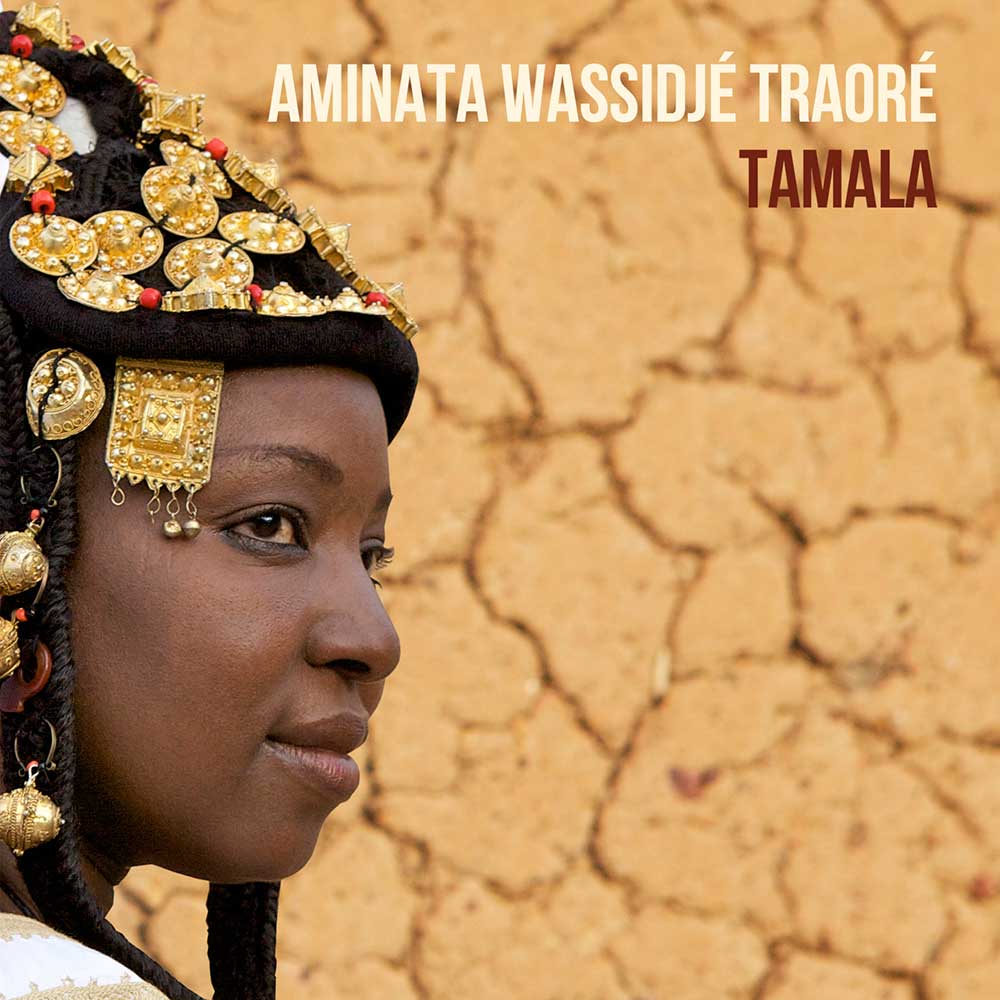This is the debut recording by a young Songhai singer from Dire, a town in the recently conflict-torn Malian north. It’s a beautiful example of music made by Malians for Malians. True, the production itself is a collaboration between Akwaaba Music and Bamako-based Studio Mali Records—entities with American and French origins. But the content, style, and aesthetic here are strictly local, free of all pretense and fussiness, and rich with the sonorities, sentiments and quirks of this fascinating cultural zone.
At the center is Aminata’s remarkable voice—clear, strong and desert dry. It can veer into scratchiness, almost break at times, always to terrific emotional effect. Think a fusion of Wassoulou legend Nahawa Doumbia and the great diva of Timbuktu Khaira Arby, and you’re somewhere close. Whether celebrating ethnic cooperation and unity (“Afrique,” “Tamala,” “Tamasheq”), promoting honesty, humility, and love (“Alfouleila,” “Senkou,” “Un Jour”), or addressing the recent troubles in her native region (“Takamba”), Aminata sings with irresistible directness and simplicity. Her message is unmistakable: diversity, development, dialogue and strong families, not division and conflict, are the way forward for Mali.
And then there’s the music—in a word, sublime. Electric and acoustic guitars interweave with plinking spike lute (kurbu) and wheedling traditional violin, and, sometimes, calabash percussion, to create cycling, percussive musical beds throughout. Drums and bass anchor these hypnotic grooves with simple accents. Extreme panning of instruments results in crosstalk and chatter between interlocking lines that tickle the ears. Solos burst forth with forthright clarity and consistent eloquence. Western sounds and production techniques have been appropriated here, but the melodic phrasing, rhythms and modalities in the music are 100% local.
The slow rhythms of Songhai music (“Senkou,” “Tamasheq,” “Yema do Fafa”) are particularly seductive. They bring to mind the fluidly sensuous arm movements of takamba dancers, or gracefully evolving sculptures of sand and wind in the vast Sahara. When the ensemble unleashes faster, rolling grooves in songs like “Senkou,” “Tamala” and “Un Jour”—the techiest track here—the effect is quite ecstatic. Aminata’s authoritative vocal is often answered by a strong chorus of male and female voices, enhancing both seduction and ecstasy.
More electric than the Songhai chamber music of Afel Bocoum, and more deeply rooted in traditional melodies and rhythms than the many Tuareg rock bands on the scene these days, this is a fine addition to the artistic pantheon of the Malian north, a region where musicians seem more sensible and effective spokespeople than political, military or religious leaders.









